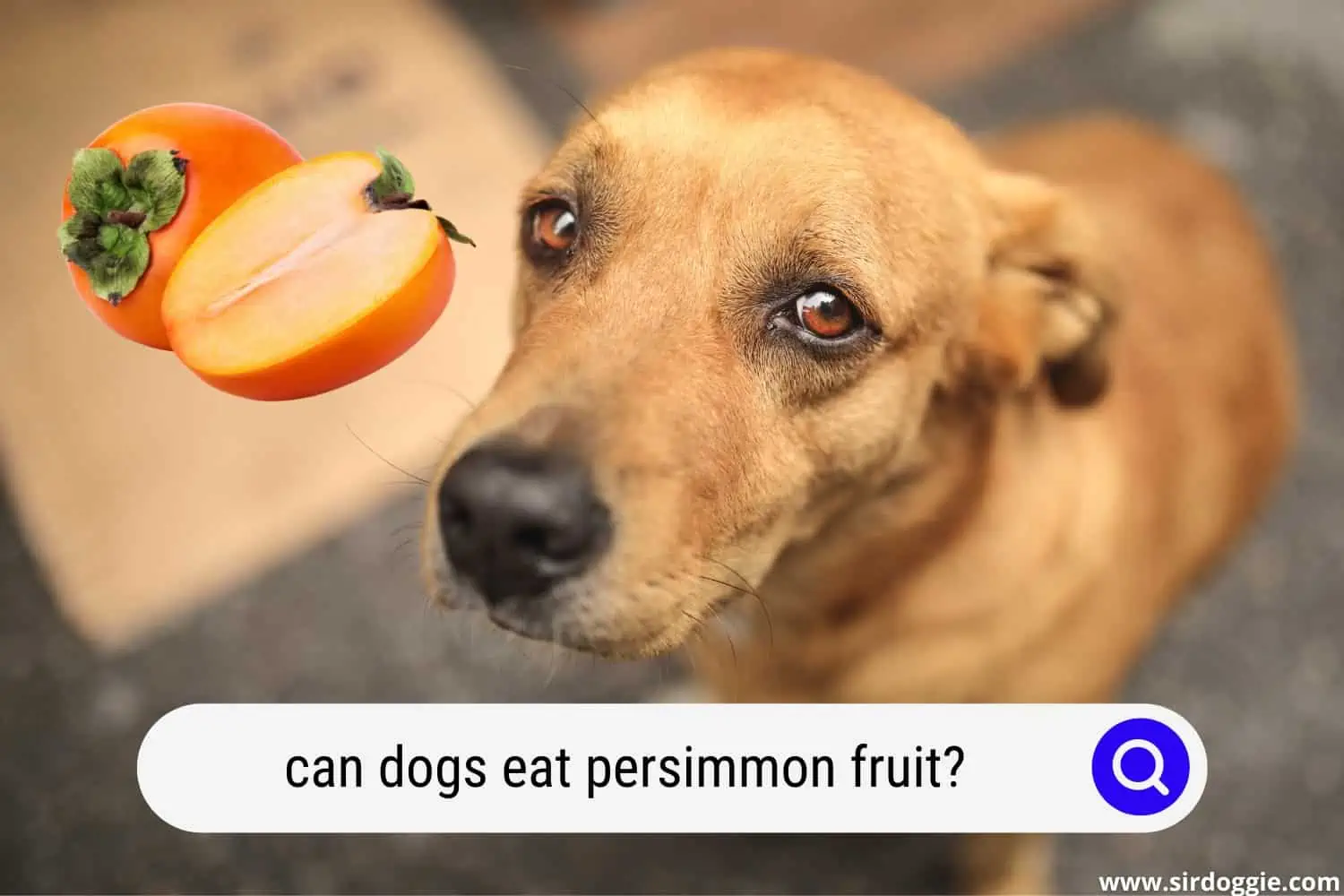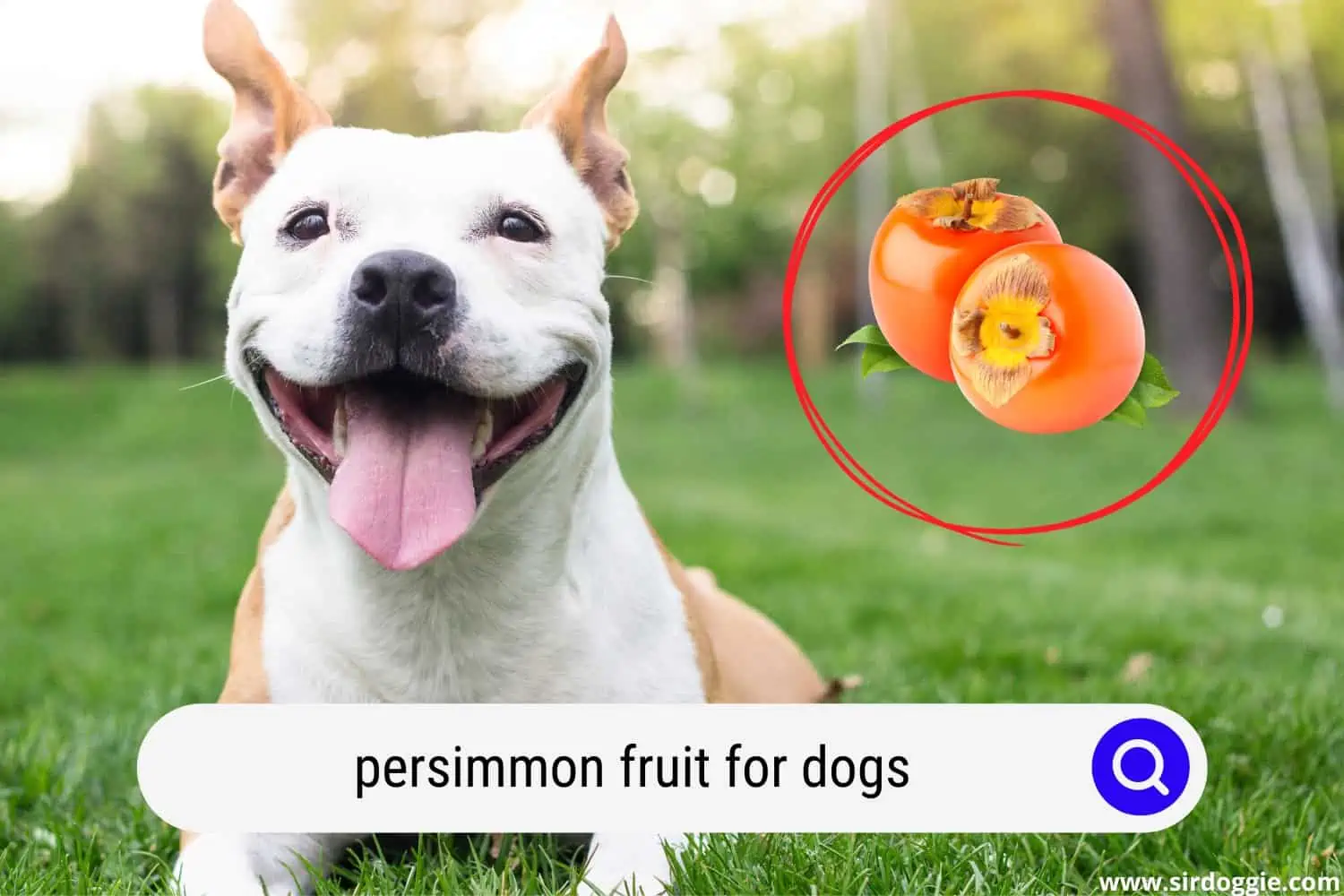Can Dogs Eat Persimmon Fruit?
Everyone knows that dogs shouldn’t eat chocolate, right? Diet questions are common with many owners, often wondering if can dogs eat persimmon fruit, among other things.
Giving unhealthy foods to your dog can be even lethal if they eat a substantial amount, which is why you must know exactly what you can and can’t feed your dog. This is exactly what we’ll be learning in today’s article.

Can Dogs Eat Persimmon Fruit?
All dogs can process persimmons, however, you should never give your dog too much of this fruit at a time. Remember that it’s just another snack, and a snack should never comprise more than 10% of their daily diet.
This isn’t the only thing for you to worry about – although your pup can process the fruit, they don’t know that they shouldn’t eat the seeds. Now, seeds aren’t toxic on their own, but they’re not harmless either.
Dogs shouldn’t eat seeds from any fruit as they can cause blockages in their digestive tract. This is the same reason why your dog should never eat cooked bones.
However, if you’re going to cut the fruit open with a knife and take out the seeds – there’s no reason for your dog not to enjoy some. It’s very potent with vitamins A and B, so it’s a healthy fruit.
Can Dogs Eat All Fruits
There are a few fruits that dogs can’t eat, but even with the ones they can eat, you have to be careful about seeds. Make sure that you take them out before you feed your dog.
There are a few famous and popular fruits that your dog shouldn’t eat.
Let’s start with the avocado – unless you want your dog to vomit and develop diarrhea because of the person (a toxin in avocados), you shouldn’t let your dog eat it. Humans can process this toxin much better than dogs.
Grapes are incredibly unsafe for dogs. It might appear odd as humans love grapes and we can eat them without any preparation, but both fresh and dry grapes can lead to kidney failure – they’re toxic for dogs.
You should also never let your dog eat cherries – not only do they contain a seed that your dog won’t be able to process (not to mention that they could choke on it), but cherries also contain cyanide in small amounts. These amounts, while not too much for us, are too much for dogs.
However, aside from these fruits, everything is pretty much fair game for dogs as long as you take out the seeds before feeding your pup. Seeds aren’t only dangerous because they’re difficult to process, but they’re also a choking hazard.
Related Reading: Is Watermelon Poisonous To Dogs?
Are Fruits Good for Dogs?
Fruits are good for dogs, but they have to eat them in controlled amounts. We all know that most fruits and vegetables are filled to the brim with vitamins which are crucial when it comes to staying healthy.
However, dogs still shouldn’t eat fruits in amounts humans often eat. We can eat five bananas and apples a day if we want to – dogs can’t. There are toxins in these fruits that we can process easily, but other animals can’t, which is why you shouldn’t feed your dog much fruit.
You can also harm your dog in other ways, even if the fruit isn’t toxic. For example, lemons are so acidic that they’re most likely going to cause an upset in your dog’s stomach.
Remember the 10% rule we had already mentioned and stick to it – giving your dog a slice of an apple as a treat is great, but trying to force-feed fruits to your dog as a primary source of nutrients is not only dangerous but also detrimental to your dog’s diet.
Dogs need protein as their primary macronutrient – at least 25% of their diet should be in protein. No matter how tasty they are or how potent with vitamins they are – fruits aren’t filled with protein.
Best Fruits for Dogs
The healthiest fruits you can feed your dog are apples because of the number of vitamins and fiber, while bananas are great because of sugar, calcium, and magnesium.
Strawberries are great as treats, while watermelon is great as a refreshment (remember that it’s mostly water). Mandarins are also a favorite to many dogs and they’re usually tastier to them than oranges.
Dogs can eat most berries, like blackcurrant, but it’s important to make sure that they’re not too ripe. This is a common problem with many fruits – they can’t be overripe.
It’s best to consult your vet when it comes to this, as different fruits have different rules with different breeds.

To End
Persimmon for dogs is a treat just like any other and it’s not unsafe at all. There are only two important things to keep in mind. Firstly – make sure to take the seed out before you give your dog this fruit (or any other fruit for that matter).
Secondly, dogs shouldn’t eat fruits in excess – it should never be more than 10% of their diet. They can’t process fruits the same way we can, as their diet is mostly protein-based.
There are many different fruits and vegetables that dogs can’t eat, so make sure to learn that list before you start giving any of those to your dog.
Related Reading: Can Dogs Have Pomegranate Juice?
FAQ
What happens if my dog eats a persimmon?
Absolutely nothing happens. It's likely that your dog will pass the fruit just like any other food. It's possible that the seed will get stuck, in which case you'll notice that your dog doesn't defecate and you should take it to the vet.
Do persimmons hurt dogs?
Persimmons are a healthy fruit if they're not eaten excessively. The only thing you should keep in mind is taking out the seeds because that's the only dangerous part for the dog.
How much persimmon can a dog eat?
Fruit is a snack for dogs, so it shouldn't make up more than 10% of their daily diet.

Family Dog Expert Author
Hi there! I’m Stuart, a devoted dog lover and family dog expert with over a decade of experience working with our furry companions. My passion for dogs drives me to share my knowledge and expertise, helping families build strong, loving bonds with their four-legged friends. When I’m not writing for SirDoggie, you’ll find me hiking, playing with my beautiful dog, or studying music.